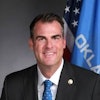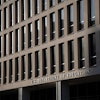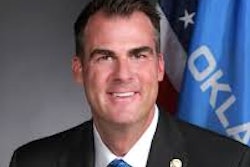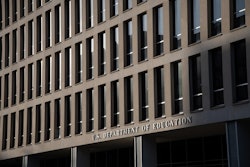As former Provost of Morris Brown College (1999 to 2002) I am compelled to reply to The Chronicle of Higher Education article (Dec 22, 2008) on the tragic story of Morris Brown College. The Chronicle reports:
Well before city officials shut off the water at Atlanta’s Morris Brown College last week, the 127-year-old college was already buckling under the weight of $32-million in debt. Now, without the money to pay $380,000 in water bills dating back to 2004 . . . the historically Black college will not reopen next semester and may soon close permanently, officials told the Atlanta Journal-Constitution this weekend.
While it is true that this is only the latest struggle for Morris Brown in recent years, misinformation on facts leading to the college’s loss of its accreditation fuel arguments that the college does not deserve to survive. Specifically, the following statement in the Dec 22, 2008 article is factually inaccurate:
In 2002 the college lost its accreditation from the Southern Association of Colleges and Schools [SACS] because of heavy debt and a criminal investigation into the financial dealings of a former president, Dolores E. Cross.
Few members of the public appreciate that regional accrediting bodies like SACS operate under tight federal guidelines and there are only a few “conditions of eligibility” under which a college may face outright loss of accreditation: While heavy debt and allegations of criminal wrongdoing may be of circumstantial interest, heavy debt and allegations in themselves are not a basis for loss of accreditation.
The news media seem oblivious to the fact that in the 10-year period prior to the Cross administration, the college had experienced four changes in leadership at the top and in 1992 barely survived a major financial crisis. In the fall of 1998 the college faced an $8 million audit disallowance that led to its being placed on manual reimbursement in its financial aid status. The college faced serious financial management and systems issues, declining enrollments, a technology infrastructure inadequate for meeting Y2K challenges, a $3.2-million structural deficit, and 68 self-study findings that would have to be met within two years to maintain clear reaccreditation with the Southern Association of Schools and Colleges (SACS).
Even more telling, Dr. Cross saved the college several hundreds of thousands of dollars by paying her own salary for two years (from funds brought with her) and insisting that moneys earmarked by the Board of Trustees for remodeling the president’s house be applied instead to the deferred maintenance of academic facilities and residence halls. From her own personal means she paid for the purchase and remodeling of a residential property that would also be utilized for official functions of the college. The profits from her book Breaking Through the Wall, on the parallels between her marathon running achievements and her two presidencies, went exclusively to scholarships for Morris Brown College students.
The college’s response to the situation it faced was nothing short of heroic. As Provost, I headed a team which within two-and-a-half years enabled Morris Brown to satisfy 64 of the 68 findings handed down by SACS in 1999. The college had also implemented a Y2K-responsive technology infrastructure, established a year-round precollege program, sharply increased enrollments, greatly improved fundraising, and improved student retention and graduation rates.
The U.S. Department of Education was engaged to train staff in the Office of Student Financial Aid and given access to personnel in departments at the college. When in the fall of 2001, the DOE uncovered chronic issues in both the fiscal affairs and student financial aid areas, including the fact that students were not being billed on a regular basis, Cross took necessary corrective actions. She identified a new director of student financial aid and recommended changes in the leadership of fiscal affairs. At the time of her resignation the college had been placed on probation with good cause.
The following statement (Dec. 22, 2008 article) is a rare case of frankly shoddy journalism, in which The Chronicle merely regurgitates without confirmatory investigation the warmed-over reportage of The Atlanta Journal-Constitution and AP wire services:
Four years later, Ms. Cross (who resigned from the college in 2002) pleaded guilty to embezzlement, admitting that she had fraudulently obtained millions of dollars in federal student loans and grants to cover the college’s expenses, which increased sharply during her tenure.
In truth, Cross did not plead ‘guilty to embezzlement, admitting that she had fraudulently obtained millions of dollars in federal student loans and grants … ’ The only charge to which she pleaded guilty was knowingly and willfully applying approximately $26,000 from Sept. 10, 2001 to Dec. 27, 2001 to the operating expenses of the college. The college had received a letter on Sept. 10 from the regional office of the Department of Education calling for specific processes prior to disbursement of funds. The college was entitled to receive funds, but not in that amount.
Presidents in a truly civil society are never charged with this kind of error, except by hyperzealous judicial systems that seek to target a particular individual or college as retribution for one “sin” or another. The roster of violators who have committed even “worse” violations would include presidents of some of the best schools in the nation; such violation actually committed by lower ranking personnel, are simply not considered to rise to a level of prosecutorial interest for pursuing president, unless ordered to do so by high officials pushing suspect political agendas. These kinds of agendas came to light in the wake of recent firings of U.S. attorneys who declined to pursue political “hit” lists. In other times and other places, there would have been no more than frank and friendly advice from the relevant federal officials to address whatever the problem.
I was present in the federal court in Atlanta when U.S. District Court Judge Julie Carnes, in handing down sentence, quickly disabused the courtroom audience of what the case was not about. It was not about Cross pleading guilty to fraud or embezzlement, as the press erroneously trumpets ad nauseam and without shame or journalistic remorse. In legal language, the charge at hand was a technical violation called misapplication of funds.
The judge opined in open court that it was reasonably doubtful that the body of evidence that had been stockpiled would ever support allegations of fraud or embezzlement, especially given that Cross never enriched herself at the expense of the college. And if by mistake such allegations were found applicable in Cross’ case, then most American college presidents would be in serious trouble for merely serving as presidents in institutions employing management staff who occasionally make mistakes.
My final point is the saddest of all: Why, indeed, would respectable journalistic organizations irresponsibly disseminate hearsay and dissembling as investigated and confirmed fact, thus generating the false impression that Morris Brown College was somehow doing, at least tolerably well, until the arrival of Dr. Dolores E. Cross as president?
It is an impression that would have the multitudes believe what everyone in Atlanta with two functioning brain cells knows is patently untrue. The financial problems of Morris Brown began long ago under the watch of previous trustee boards. Former President Cross made a wonderful scapegoat for so many who have sought for so long to avoid facing so much unpleasant truth. But we need not dwell there.
In the spirit of unity through diversity theme of President-elect Barack Obama, we might reflect a moment on the power of empathy, a precious quality that is most needed in tumultuous times.
As a haven for educating and nurturing hungry souls in a land whose schools do little of either, Morris Brown College, along with its sister legacy institutions, is especially deserving of survival and prosperity. Indeed, no longer the racially segregated entities of yesteryear, American education more than ever needs the historic, African-American “extended family” ethos ¯ the cross-disciplinary, unity of knowledge approach to learning and living.
That is the legacy of historically Black colleges and universities generally, but of AME-Church founded Morris Brown particularly. Morris Brown merits better than harsh judgments or parsimonious second-guessing. It deserves the deepest resource support and counsel of experts that is humanly obtainable in an era of billion-dollar corporate bailouts ¯ astronomical sums in comparison to the paltry amounts that could utterly revive all of the Morris Browns of the nation put together. With the resounding support of its current and former base of students, faculty, alumni and its newly constituted Board of Trustees, Morris Brown College could not only survive, it can rise up like the Phoenix as a new beacon of hope for an entire nation attempting to find its way out of a long dark night.
Dr. Grant D. Venerable, II was Provost of Morris Brown College from 1999 to 2002.
Email the editor: editor@diverseeducation.com
Click here to post and read comments
© Copyright 2005 by DiverseEducation.com















